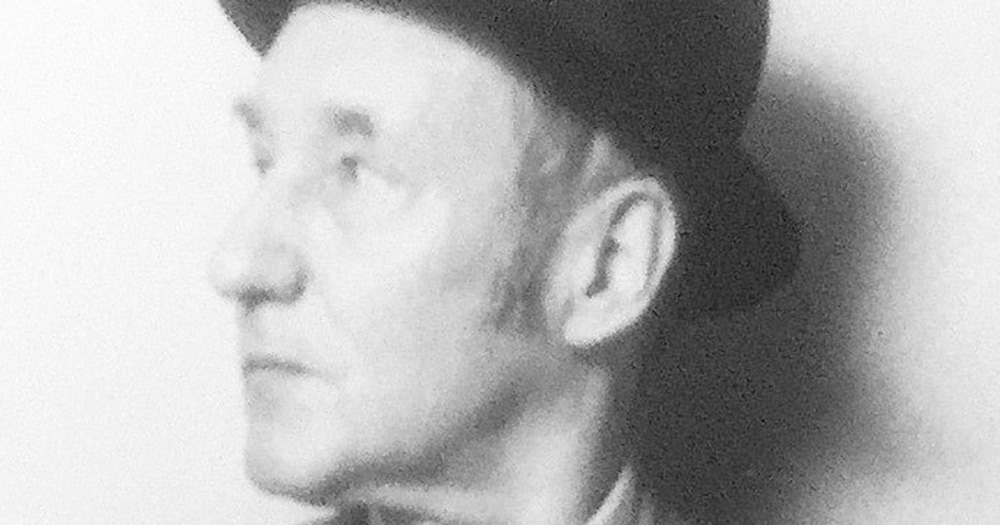While the internet is a buzz with the release of the teaser trailer for Queer starring Daniel Craig and directed by Luca Guadagnino, David Ferguson took a look at the novel the film is adapted from and the author behind it, William S Burroughs.
The film Queer is an adaptation of William S. Burroughs’s novel of the same name, written between 1951 and 1953, but not published until 1985. Burroughs is probably best known for his novel Naked Lunch (1959), which was adapted into a film by David Cronenberg in 1991.
Burroughs was friends with fellow writers Jack Kerouac and Allen Ginsberg, and the three were the core figures of the Beat Generation. He met the writers through his friends Lucien Carr and David Kammerer and he was involved in the cover-up of the murder of Kammerer by Carr in 1944 (dramatised in the 2013 film, Kill Your Darlings).
Burroughs co-wrote a book with Kerouac, And The Hippos Were Boiled In Their Tanks, that was inspired by the events. This was Burrough’s first novel but he and Kerouac were unable to get it published and it was not released until 2008.
Burroughs’s first published novel was Junkie: Confessions of an Unredeemed Drug Addict (or just Junky), which was published in 1953 under the pen name William Lee. It follows ‘William Lee’ as he struggles with morphine and heroin addiction.
Critics see William Lee as Burroughs himself and see the book as semi-autobiographical. Burroughs wrote about Junky in his 1985 introduction to Queer, saying: “The motivation for that was comparatively simple: to put down in the most accurate and simple terms my experiences as an addict.”
Queer is a kind of sequel to this book as Junky ends with the stated ambition of finding a drug called yage (which allegedly gave users the power of telepathy). Queer subsequently includes a trip to Latin America to find the drug, as it follows a character named Lee and his experiences living in Mexico City.
Lee is self-conscious and insecure and is driven to pursue a young man named Allerton. Like Junky, Queer could be seen as semi-autobiographical. The character of Allerton was based on a US Navy serviceman named Adelbert Lewis Marker, whom Burroughs befriended in Mexico City, where he fled to escape a conviction on the charge of heroin and marijuana possession in New Orleans.
Burroughs wrote of Queer, also in that 1985 introduction, “My motivations to write Queer were more complex, and are not clear to me at the present time. Why should I wish to chronicle so carefully these extremely painful and unpleasant and lacerating memories? While it was I who wrote Junky, I feel that I was being written in Queer.”
He was “paralyzed with reluctance” to write the 1985 introduction and to re-visit the manuscript saying, “My past was a poisoned river from which one was fortunate to escape, and by which one feels immediately threatened, years after the events recorded.”
He realised after re-visiting the manuscript that the book was motivated by an event that is never referenced in it, the accidental murder of his wife, Joan Vollmer, in September 1951.
Burroughs admits that he shot Vollmer but says it was an accident. Initially, he claimed it was caused by a drunken attempt at a ‘William Tell’ stunt. He later said that he had been showing a gun to friends when it fell and hit a table, firing the bullet that killed her.
Burroughs writes in an uncompromising way about homosexuality in Queer, something the author did frequently in his writing, including in Wild Boys (1971) and The Red Night Trilogy (1981–1987). Because of this, there has been some discussion of how Burroughs hasn’t been embraced by the LGBTQ+ community as one of their own, even though queerness was a central part of his life and his work.
In his book, Queer Burroughs (2001), writer Jamie Russell argues that Burroughs has been treated as a writer who is gay rather than a gay writer and offers a queer reading of Burroughs’s novels.
A more recent book, Fever Spores: The Queer Reclamation of William S. Burroughs (2022) attempts to bring the author into the gay literary canon. It features interviews and essays from writers, filmmakers, musicians, artists, and critics on the subject, from the likes of Blondie’s Debbie Harry and Chris Stein (who knew Burroughs) to David Cronenberg (who adapted Naked Lunch into a film).
Of course, part of the discussion is how Burroughs himself never identified as being gay. However, it has been argued that he never labelled himself as anything else either.
In his introduction to Fever Spores, queer author Tom Cardamone writes, “Forget ‘coming out.’ With William S. Burroughs, there’s no negotiation, no need for acceptance, for escape, for forgiveness or reconciliation. He wanted us to advance, wholly, willfully, with immortal intent.”
© 2024 GCN (Gay Community News). All rights reserved.
Support GCN
GCN is a free, vital resource for Ireland’s LGBTQ+ community since 1988.
GCN is a trading name of National LGBT Federation CLG, a registered charity - Charity Number: 20034580.
GCN relies on the generous support of the community and allies to sustain the crucial work that we do. Producing GCN is costly, and, in an industry which has been hugely impacted by rising costs, we need your support to help sustain and grow this vital resource.
Supporting GCN for as little as €1.99 per month will help us continue our work as Ireland’s free, independent LGBTQ+ media.
